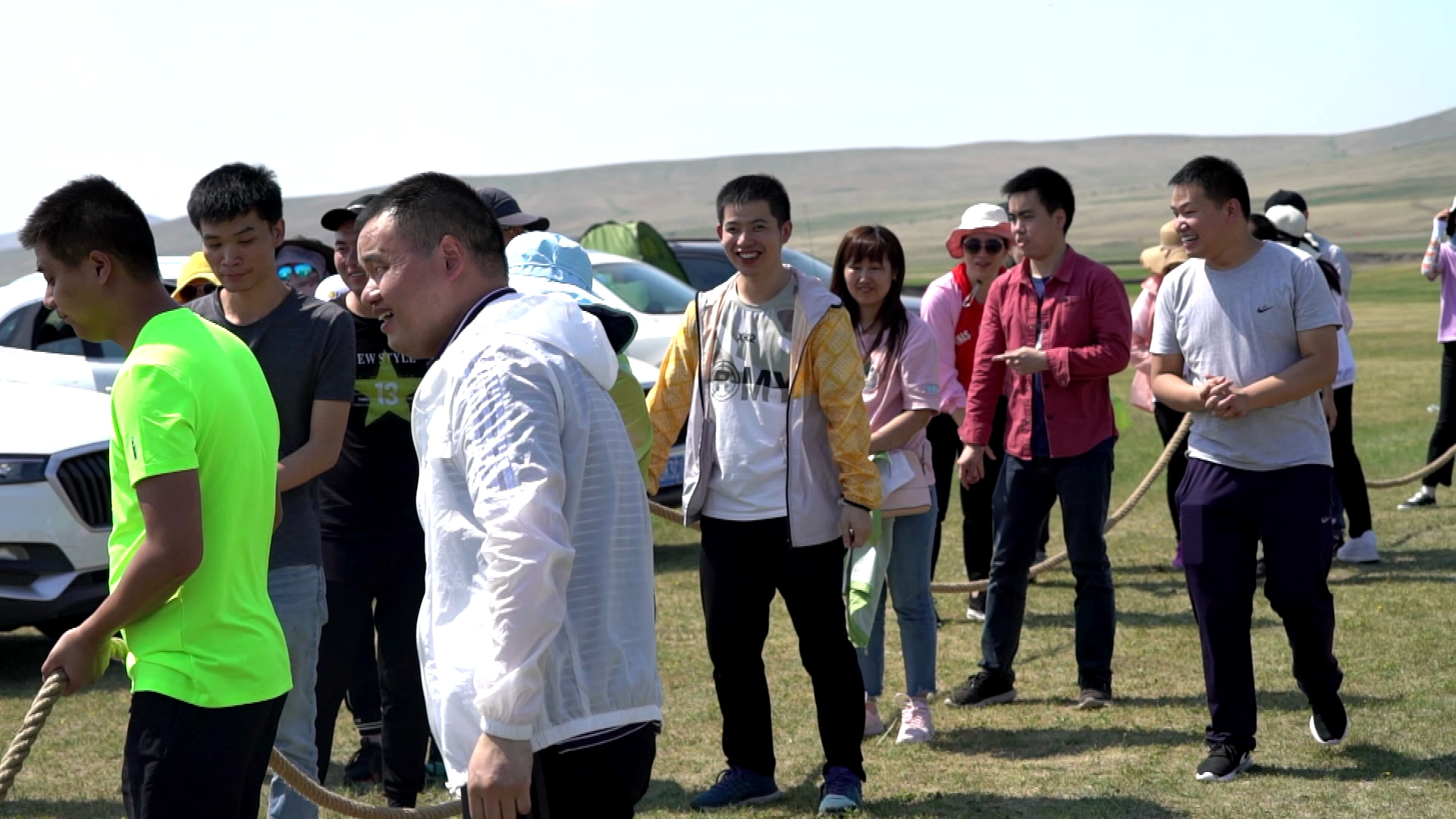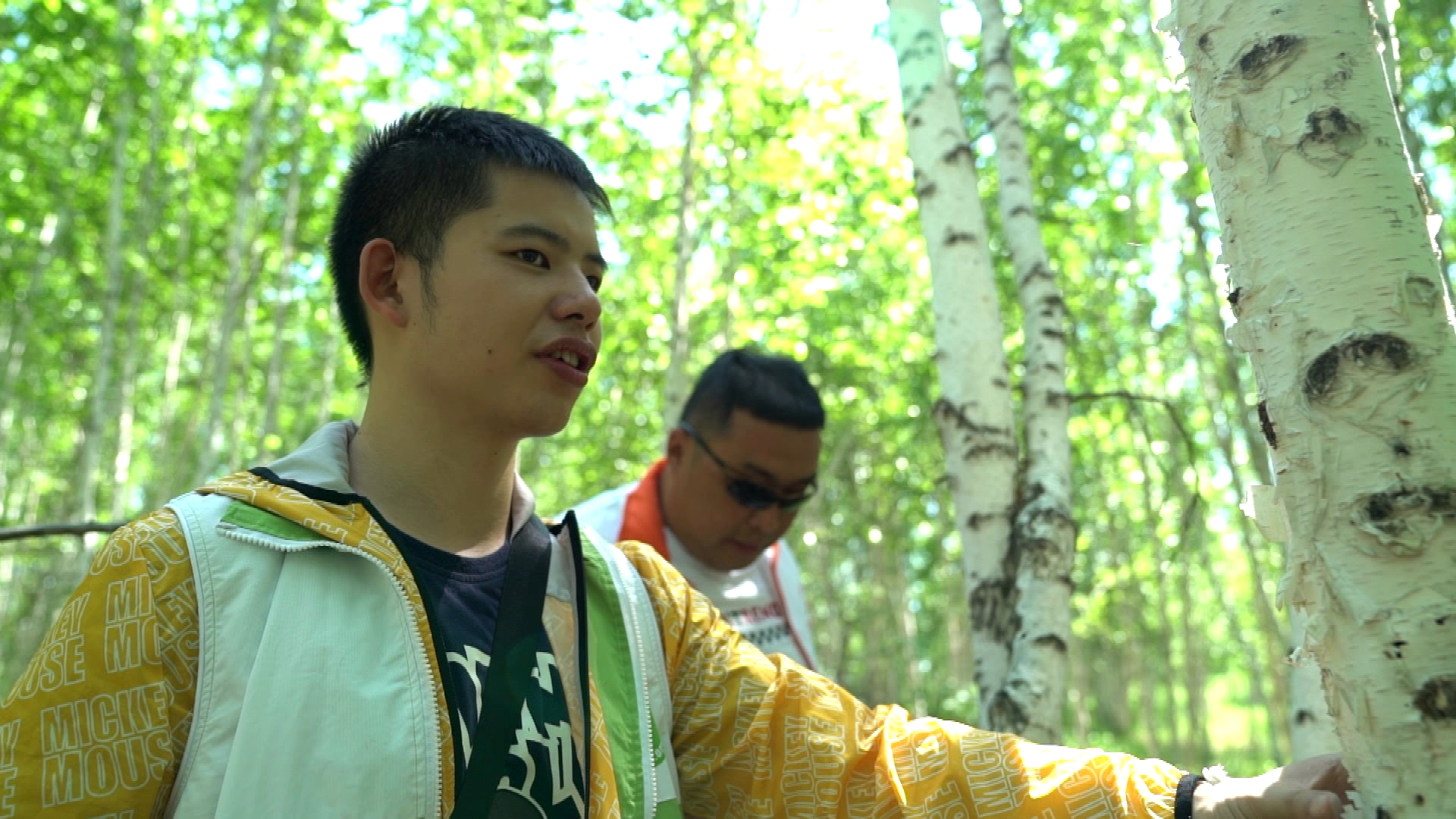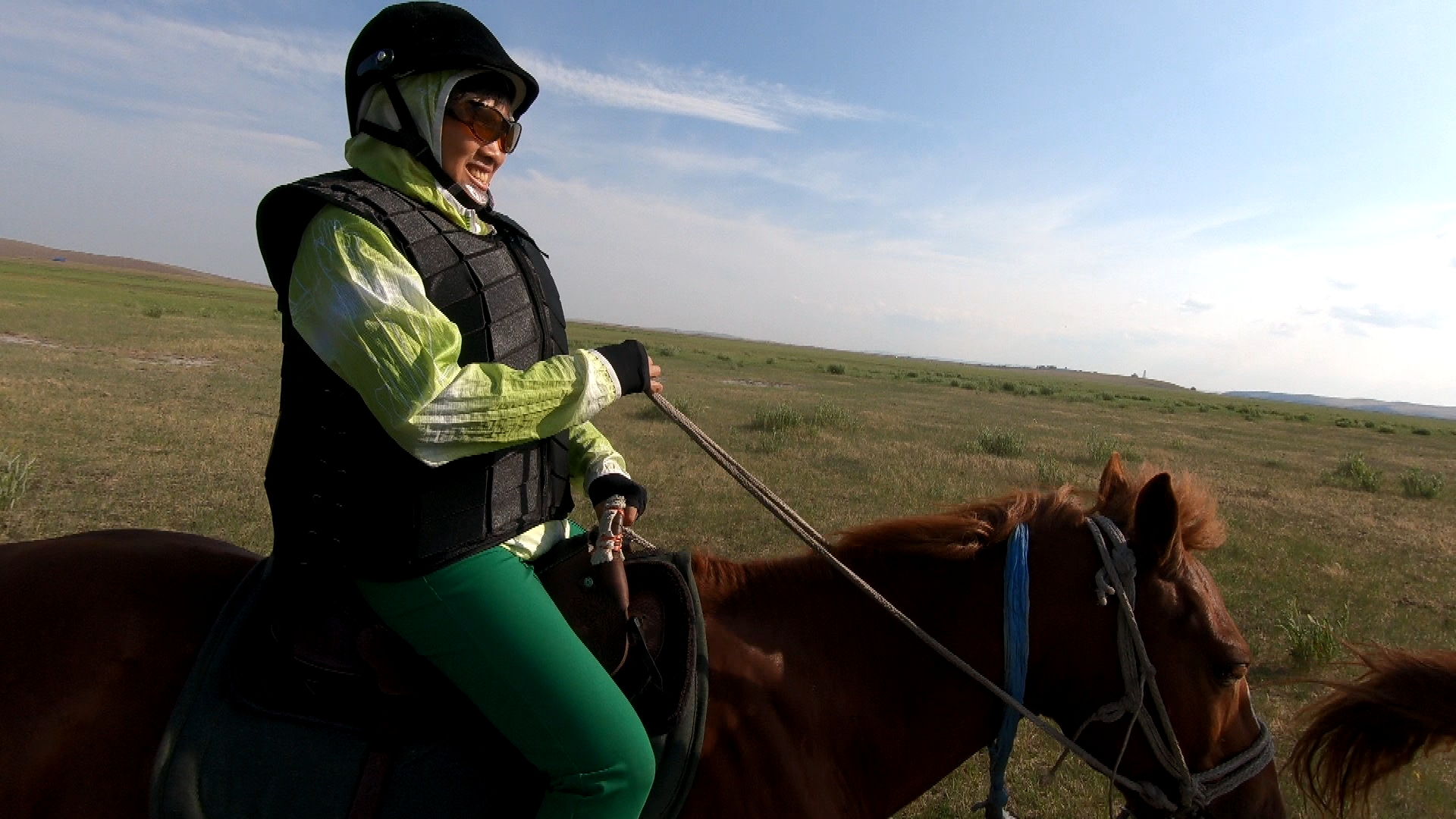03:25

"Why do they travel, and how? They're not able to see." This is the sort of question Mei Zhiyu is often asked. Mei is the director of Zhisu Commonweal Organization, a Suzhou-based non-profit organization that, through its own travel agency, has arranged more than two dozen holidays for visually-impaired people over the past two years. In all, Zhisu has given around 1,000 blind and visually-impaired travelers the chance to explore places across China.
This time, a group of 36 visually-impaired visitors are heading to Hulun Buir grassland in Inner Mongolia Autonomous Region.
Experiencing the sights through every sense
"It feels like paper," says Luo Chenhao when he touches the bark of a silver birch tree for the first time in his life.

Luo Chenhao touches the bark of a silver birch tree. /CGTN Photo
Luo Chenhao touches the bark of a silver birch tree. /CGTN Photo
23-year-old Luo Chenhao works as a tui na therapist in Hangzhou. His limited light perception allows him to see nothing more than shadows. But it doesn't prevent him from traveling. "You probably consider seeing stunning scenery as the purpose of a trip," he says. "In our case, it's not necessary. To me, taking a plane for the first time, traveling by train in a sleeping berth… All of these are my experience of a trip," he remarks.
He is paired with volunteer guide Li Manshuo. This is the third time Li has accompanied a visually-impaired travel group. "Visually-impaired travelers get the experience mainly through smelling or listening, or touching with the hands," Li says, and "with our descriptions, they can create a picture of the scene in their minds."
A journey sharing positive energy
Zhou Ling suffers from a deteriorating eye condition called retinitis pigmentosa. She now only has peripheral vision, and recently gave up her job as a nurse in Beijing.
She describes herself as a travel enthusiast, having visited Japan, the U.S., and several countries in Europe, all with her family. Now, for the second time, she is going on a trip with a group of fellow visually-impaired tourists.
"It's definitely a different experience," she says. "We understand each other better. There are others who're younger than me and have worse eyesight. But still they have a positive attitude to life. I think we're strong, and it's a healing process for all of us."
Visually impaired travelers can experience more than we think
The group consists of 36 tourists in all. The itinerary is designed to give them a much fuller experience than just visiting the sights. The more adventurous of them get the chance to ride a horse and even drive a car.

It is just as cool for a visually-impaired traveller in riding a horse. /CGTN Photo
It is just as cool for a visually-impaired traveller in riding a horse. /CGTN Photo
"Their income and where they live seem to determine their willingness to travel," says tour group leader, Mei Zhiyu. In a survey of 2,000 people with little or no vision, Zhisu found that 60 percent expressed a strong desire to travel.
Of 1,000 visually-impaired tourists who have traveled with Zhisu to date, over 90 percent are from big cities such as Shanghai and Beijing.
Almost all have a steady job and income. "People who live in big cities tend to have an open mind, and want to go out and explore more, instead of worrying about their capabilities," Mei says. "Actually, most visually-impaired people have a greater capacity to look after themselves than we think. We take their safety into consideration, and then we accompany them as they experience things they didn't think they could do. We try to offer them the same experiences as sighted travelers."
To discover how people with a visual impairment can experience the joy of travel, tune in to Rediscovering China, this Sunday.